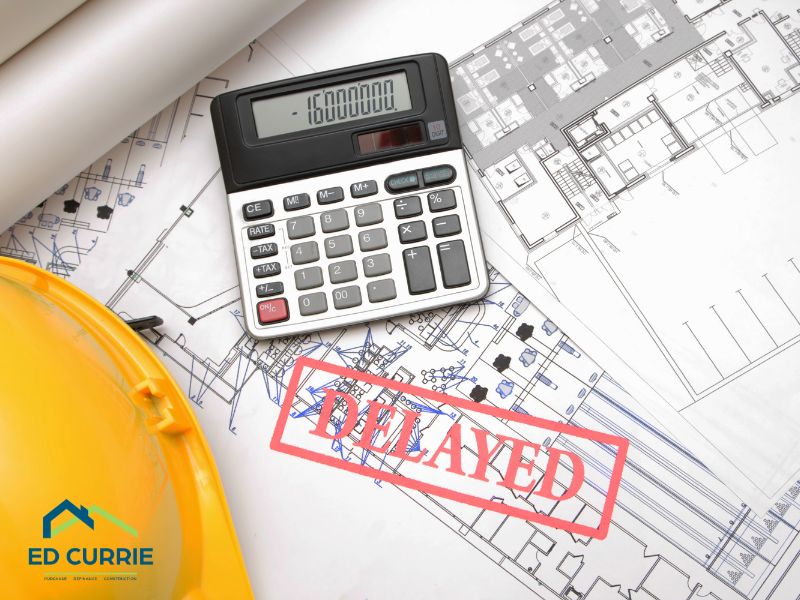 When purchasing a new home or making significant renovations with the help of a construction loan, understanding home warranties is crucial. A home warranty can provide peace of mind by covering the cost of repairs or replacements for major home systems and appliances. However, not all home warranties are created equal, and it’s important to know exactly what is and isn’t covered to avoid unexpected expenses down the road. In this blog, we’ll break down the key elements of home warranties, what they typically cover, and where they may fall short.
When purchasing a new home or making significant renovations with the help of a construction loan, understanding home warranties is crucial. A home warranty can provide peace of mind by covering the cost of repairs or replacements for major home systems and appliances. However, not all home warranties are created equal, and it’s important to know exactly what is and isn’t covered to avoid unexpected expenses down the road. In this blog, we’ll break down the key elements of home warranties, what they typically cover, and where they may fall short.
What is a Home Warranty?
A home warranty is a service contract that helps protect homeowners from the costs of repair or replacement for covered appliances and systems. Often provided by builders or sellers, home warranties are typically purchased for a year and can be renewed annually. They serve as an added layer of protection for new homeowners or those who have recently undergone renovations.
What’s Covered by a Home Warranty?
While the exact coverage can vary depending on the plan and provider, most home warranties typically cover the following areas:
- Major Appliances
Many home warranties cover essential household appliances such as:- Dishwashers
- Refrigerators
- Ovens and stoves
- Microwaves
- Washing machines and dryers These items are typically covered for repairs or replacements if they break down due to normal wear and tear.
- HVAC Systems
Heating, ventilation, and air conditioning systems are often included in home warranties. These systems are integral to your home’s comfort and efficiency, and their repair or replacement can be costly without a warranty. - Plumbing Systems
Home warranties frequently cover plumbing systems, including the pipes, faucets, and drains. Coverage may extend to issues such as leaks, clogs, or faulty piping. - Electrical Systems
Many home warranties will include electrical systems, which typically cover the wiring, circuit breakers, and outlets. This can be an important inclusion for the safety and functionality of your home. - Water Heaters
Water heaters are also commonly covered by home warranties, as they are essential to daily life and can be costly to repair or replace.
What’s Not Covered by a Home Warranty?
While home warranties offer extensive protection, there are several common exclusions that homeowners should be aware of:
- Pre-Existing Conditions
Most home warranties do not cover appliances or systems that are already damaged or defective before the policy starts. This is an important consideration when purchasing a warranty, as coverage typically only applies to items in working condition at the time of the agreement. - Negligence or Improper Maintenance
Home warranties will not cover damage resulting from neglect or improper maintenance. For instance, if an appliance breaks down because it hasn’t been cleaned or serviced regularly, the warranty may not apply. - Cosmetic Damage
Home warranties generally do not cover cosmetic issues, such as scratches, dents, or discoloration, that do not affect the functionality of an appliance or system. - Non-Covered Appliances
Not all appliances are included in a standard home warranty. For example, items like washers, dryers, or refrigerators may require a separate extended warranty or service contract. - Structural Issues
Structural elements like walls, foundations, or roofs are typically not covered under a home warranty. These issues often require a separate homeowners insurance policy or other specialized coverage. - Upgrades or Custom Installations
Certain upgrades or custom installations, such as high-end appliances or systems that are not considered standard, may not be covered. It’s essential to confirm coverage for any unique features of your home before purchasing a warranty.
Why Should You Care About Home Warranties?
Whether you’re purchasing a newly built home with a construction loan or moving into an existing property, understanding what your home warranty covers can save you from unexpected repair costs. A good warranty provides peace of mind, knowing that you won’t be financially responsible for every minor breakdown. However, it’s important to read the terms carefully to avoid unpleasant surprises and ensure you understand the exclusions.
If you’re planning a new construction project, you may want to factor in the cost of a home warranty as part of your overall budget. It could provide significant value, especially after the initial construction period, ensuring that you have protection against unforeseen repair costs.
Understanding home warranties and their limitations is a key part of managing the long-term costs of homeownership. A good warranty can cover a wide range of systems and appliances, but it’s crucial to know what’s included and what’s excluded. This knowledge will help you avoid surprises and make informed decisions about your home’s maintenance needs.
At Ed Currie Mortgage, we understand that building or renovating your dream home is an investment, and we’re here to help you navigate the complexities of financing. Whether you’re taking out a construction loan for a new build or renovation, we’re here to assist you every step of the way.
Contact us today to learn more about how we can help you finance your construction project and make informed decisions about home warranties and other aspects of homeownership.




![EdCurrie_Logo White[Transparent] EdCurrie_Logo White[Transparent]](https://edcurrie.com/wp-content/uploads/elementor/thumbs/EdCurrie_Logo-WhiteTransparent-qybu3sjgpfhje9098uitv7fpt7os2hgn52gfy6ocx4.png)